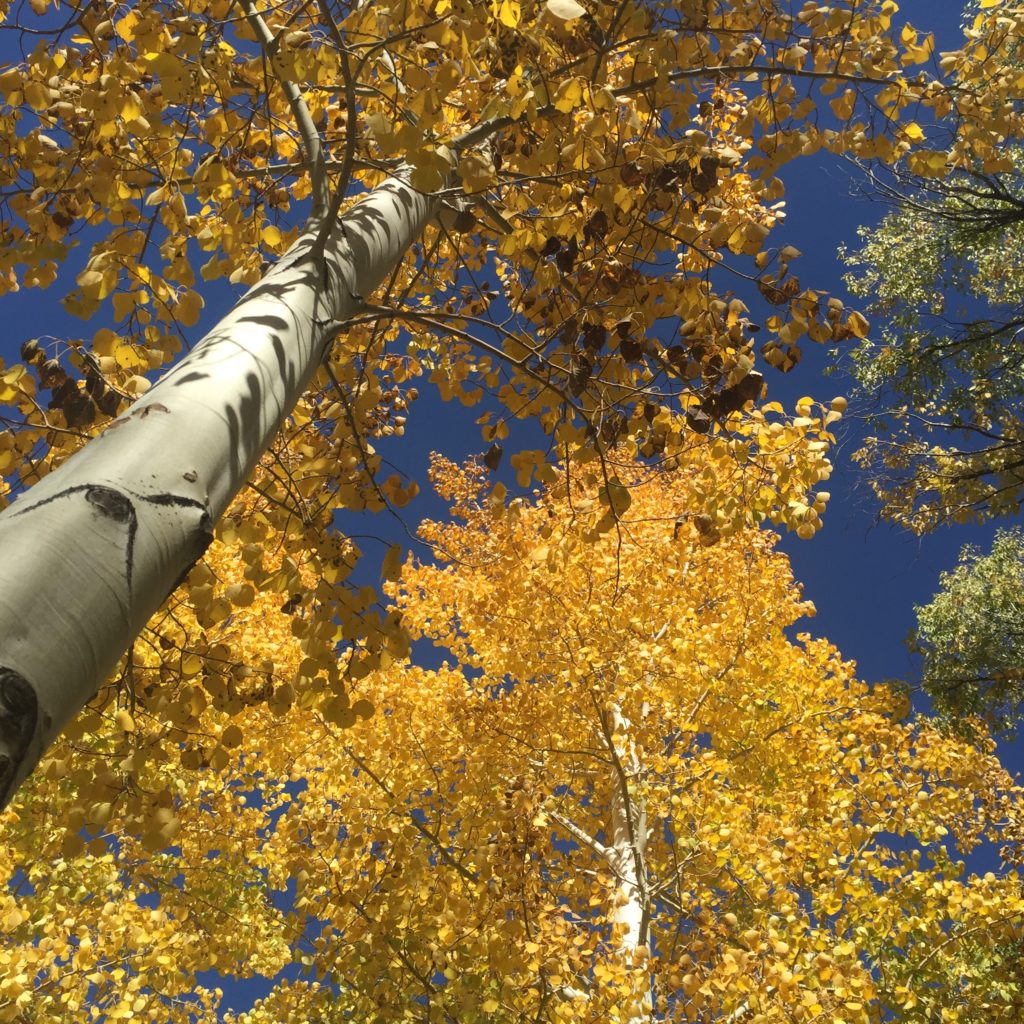Into an Earlier World & On the Way to Guadelupita
Into an Earlier World
She passed through five hundred sunsets
until the rock around her gathered the color
to keep it, all through the night and day.
It was new land to her—land where the water
had circled, pressed, smoothed, and shaped
sand into arches and statues, ridges and canyons
before it had disappeared.
The sun hot, she wore a hat with a brim as wide
as a small pond so that she had to tilt her head sometimes
to walk between the narrow walls in the labyrinth
of the fiery furnace. She did not get lost,
for there was nowhere to lose, only people,
places, and things.
After one thousand years of walking she found herself
on a white, open rock; her body dripping
with so much sweat that she laid her hat down
and swam in it, remembering to feed the fish she would later
eat with piñon nuts she had picked along the way.
With each wide stroke she took the pond grew larger
until she could not swim it all and fell weary,
longing to walk again on the red-yellow rocks
with secret holes inside.
She made a flat-bottom boat from yucca leaves,
remembering a friend she once had on the highest lake
there ever was who wove fat canoes and lived on a floating
island of reed. Her boat served her well and she paddled
for two thousand years with the crooked limbs
of junipers until finally she reached the shore.
The statues she had known once wore stranger faces
now, the ridges rose higher, the canyons dug deeper,
and the arches stretched even longer than before. The arches
stretched into entire landscapes of their own and she
walked on one, up and over, into an earlier world.
On the Way to Guadelupita
Outside Mora, on the way to Guadelupita,
the terrain changes quickly into dry, flat grassland
sloping up to low mountains on either side.
I stop at a little wooden church
with a square belfry and walk in the cemetery
between plots, some raised.
Here they planted a young pine for Christmas,
the family Martinez, on the grave
MOTHER.
Ball ornaments, worn dull from winter,
hit against each other in the wind and chime.
Far off across the field a cow bellows. Her cry
drifts over the fake flowers, a few bright, just left here.
Is it from pain, her sound, calving
the first-born of spring?
Virginia Barrett has been published in Poetry of Resistance: A Multicultural Anthology in Response to Arizona SB 1070 (University of Arizona Press), Belle Reve, and Apple Valley Review. She is the editor of two anthologies of contemporary San Francisco poets, Feather Floating on the Water—poems for our children (winner of an Acker Award for the avant-garde) and OCCUPY SF—poems from the movement.
